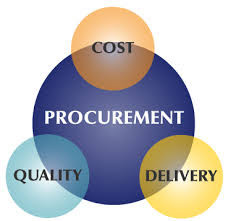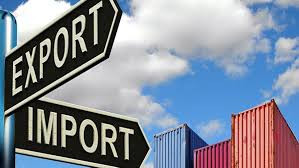
IT would appear the manual procurement processes have remained in use for a while, characterised by heavy workloads and countless spread-sheets.
This has resulted in poor judgement, missed opportunities and delayed reactions to market shifts. Procurement has, therefore, been a slow-moving functional area weighed down by manual tasks, fragmented systems and endless paperwork.
Supply chain teams are often bogged down with repetitive monotonous activities. This happens to be the perfect breeding ground for the introduction of artificial intelligence. The days of slow and clunky manual processes in supply chain management are, therefore, numbered.
Artificial intelligence (AI) has made a dramatic entrance into the procurement arena. The technological shift is here. It is a seismic shift. AI tools are finally here and making waves in procurement’s ever-shifting digital panorama.
Imagine a world where the drudgery of manual purchase order processing is a thing of the past. Manual procurement processes are slowly making way for a new era of digital commerce, heralding a new shift towards a value-driven procurement process.
Procurement teams can confidently act on insights without the burden of manual data processing. As we cast our gaze into the future, the critical role of artificial intelligence in procurement automation stands on the cusp of a monumental life changing experience.
The astounding efficiency capabilities emanating from artificial intelligence are unmatched given the traditional time suck manual procurement activities associated with yester year. The modern world would be nothing without artificial intelligence.
AI in supply chain management is associated with the use of advanced technologies and algorithms that think similarly to the human brain and is generally believed to assist procurement leaders to manage the highly complex procurement challenges with greater proficiency.
- Time running out for SA-based Zimbos
- Sally Mugabe renal unit disappears
- Epworth eyes town status
- Commodity price boom buoys GB
Keep Reading
It embraces various technologies that enable machines to perform cognitive tasks like learning, reasoning and problem solving. It is a valuable collaborative technology tool that frees up supply chain professionals to maintain their focal point on strategic procurement issues that generally require some semblance of creativity, critical thinking and sound judgement.
It is generally agreed that with AI, decision making becomes nimble, allowing supply chain professionals to pivot and adapt to the ever-changing business environment.
Artificial intelligence will do all the heavy lifting and provide all the actionable insights to procurement personnel, supercharging operational efficiency and employee productivity.
It is often said that AI mirrors how the human brain senses, reasons, and responds to stimuli to address challenges that we face day in day out. Some would further argue that AI is reshaping the procurement landscape with the precision of a mathematician.
AI is a powerful tool for the analysis of historical sales data, seasonal market trends and external trading factors, such as market conditions and consumer behaviour with a view to predict future demand.
These technologies enable procurement professionals to automate repetitive tasks, gain insights from data, resulting in data-driven procurement decisions that will yield better cost savings and operational efficiency.
Instead of heavily relying on siloed data sources based on rough estimates, artificial intelligence will seek to integrate various data streams such as historical spend data, price fluctuations and supplier performance metrics with a singular view to maximise win probabilities for procurement professionals.
Prior to the introduction and use of AI, procurement decisions were often shaped by past experience, market assumptions, incomplete or out-dated information. But with the advent of artificial intelligence, supply chain professionals are able to sift through extensive datasets, identifying patterns, trends, and potential cost-saving opportunities.
It is not just about moving at a faster rate, it is about making intelligent decisions and planning like an expert while at the same time liberating supply chain professionals from the constraints of repetitive, manual and time-consuming activities.
By analysing historical data, market trends and external factors artificial intelligence algorithms can forecast demand with greater precision. AI systems never tire, they eliminate the bottlenecks of old-style manual processing, bringing a new level of intelligence and automation, taking operational speed to the next level.
AI in procurement relies on the use of advanced technologies and algorithms that enable machines to perform tasks traditionally carried out by humans, but with enhanced efficiency, speed and accuracy.
AI algorithms can analyse historical sales data, market trends, and external factors such as weather or economic indicators to generate accurate forecasts. Machine learning algorithms can categorise spend, detect anomalies and highlight areas to target for cost savings.
Machine learning algorithms also enhances invoice processing by extracting relevant information, matching invoices with purchase orders and flagging discrepancies, thereby speeding up payment processes. This enables the handling of tasks with a level of precision and speed beyond human capacity.
AI can also help to automate and speed up every step of the spend analysis from collecting and cleansing data from various sources and classifying and analysing data to extract valuable insights. The sheer volume of data and the need to analyse it efficiently make artificial intelligence a valuable tool.
Managing contracts will always remain complex. Contract management is another area where artificial intelligence offers significant benefits. The day-to-day reviewing of contracts can be a tedious and time-consuming process for procurement and legal personnel. Natural language processing algorithms can be used to extract key terms and conditions from contracts, enabling faster and more accurate contract review and analysis.
AI scans and reads volumes of contracts in seconds, making it an invaluable partner in procurement. AI can scan contracts, flagging areas that may require immediate attention, such as clauses that deviate from standard terms and conditions.
AI-based contract management systems can automatically analyse contracts, extract key terms and major clauses, while at the same time flagging potential risks.
AI can track key milestones ensuring that renewals or renegotiations are done on time resulting in the minimisation of risks of missed opportunities or penalties.
Risk and compliance issues are ever-present concerns in procurement. The unparalleled predictive capabilities of machine learning models foster proactive risk mitigation, bolstering the adaptability of supply chains in a volatile global landscape.
AI tools offer real-time monitoring of risk factors, such as geopolitical events, economic instability and the financial stability of supplier. This enables organisations to take preventative measures to protect against operational and reputational risks.
AI tools can consolidate internal, third-party and industry-wide data to provide a 360-degree view of supplier performance and potential risk factors. It will assume the role of a radar system for potential risks in procurement, constantly scanning both historical data and real-time external factors.
AI can continuously monitor supplier performance by analysing external data sources such as news articles, economic indicators, financial reports and social media feeds.
Any sign of potential risks such as bankruptcy or labour strikes can be flagged, enabling procurement teams to take immediate action. It can continuously monitor supplier signals, identifying potential disruptions such as financial instability, regulatory changes or shifts in supplier ownership risks.
Predictive analytics can also forecast the likelihood of disruptions in certain regions. Rapid detection will ensure risks are mitigated and resolved before they become problems. These market trend and industry reports give insights that help procurement teams identify emerging technologies and market shifts that may present opportunities for innovation.
Consumer preferences are also shifting towards eco-friendly options, making it crucial for organisations to align with consumer values. This shift stems from a growing consumer consciousness, regulatory demands and a genuine desire to mitigate climate change.
A spotlight now shines on the environmental impact of sourcing, production and transportation. AI has emerged as a paramount catalyst for developing sustainable supply chains.
AI can easily identify whether carbon footprint reduction, sustainable resource usage and ethical sourcing practices are factored into every supply chain decision. It will help the business track their environmental impact and continuously track and report on various sustainability metrics.
Other AI technologies, such as chatbots and virtual assistants can self-serve and guide supply chain users through the process of stating what they need from procurement. They are useful tools for ease of communication, assisting customers whenever they require prompt resolution of their concerns.
This will obviously increase the customer satisfaction meter. It is common knowledge that AI-powered chatbots have no days off. They are readily available 24/7 to answer all the queries from stakeholders, keeping communication channels flowing for the benefit of customers.
AI technologies can also assist with supplier evaluation. Managing supplier relationships is an art, but artificial intelligence adds a level of science to the mix. Artificial intelligence can generate real-time supplier scorecards based on metrics, such as delivery times, defect rates and cost effectiveness.
These automated evaluations provide procurement teams with continuous insights into supplier performance, allowing for more constructive engagements during performance reviews.
AI happens to be in the process of rewriting the rulebook, heralding a golden age of technological optimisation of procurement process flows. It would appear the message is clear.
To remain relevant in the coming years, implementing artificial intelligence is not a matter of if, but when. Procurement, in the age of artificial intelligence is apparently on the cusp of becoming the digital showroom that defines organisational effectiveness.
Done well, that can increase the pipeline of value creation initiatives. Supply chain decisions are no longer just quick — they are smarter and backed by solid, data driven evidence. It is not just fast; AI is also precise.
Mix old data with fresh insights and you have a recipe for a thorough supply chain analysis. But the road to artificial intelligence integration in procurement is not without its hurdles. Despite its evident value, it does not replace humans as it has no emotive reasoning. It cannot replace the human ability of cognitive and emotive reasoning.
Nyika is a supply chain practitioner based in Harare. — [email protected].











